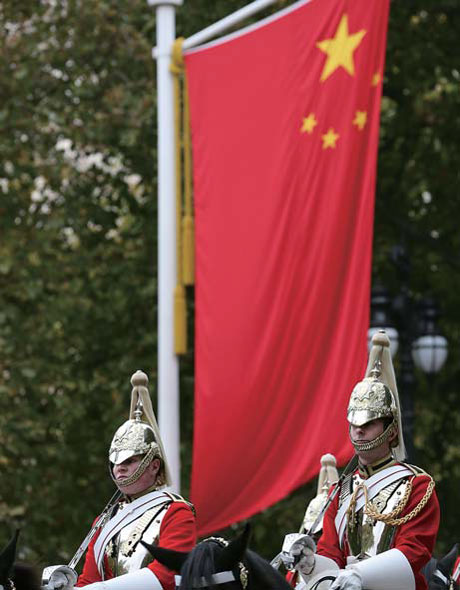CBBC guides British companies through China's changing times
|
Lord James Sassoon, chairman of the China-Britain Business Council. |
Organization helps nations work together for closer economic ties
After 30 years of spectacular economic growth and social change, China is embarking on the next - inevitably more difficult - phase of its development; the impact of which will be global and long lasting.
Commentators on all sides are currently competing about what the future holds for China.
The current UK government has made clear its determination to pursue closer economic ties with China.
This can be seen in the recent trip of the chancellor to China, during which he announced a new ambition to make China the United Kingdom's second-largest trading partner by 2025.
It was the fourth-largest export market for UK goods in the first seven months of 2015 - worth 18 billion pounds ($27.9 billion) on an annualized basis.
There are few more symbolically important moments between the two countries than a state visit.
The spotlight of attention will come with forensic levels of analysis and opinion.
At the China-Britain Business Council, it is our responsibility to give our member companies, which range from the UK's largest multinationals to small- and medium-sized enterprises, an impartial perspective on the business environment in China.
The CBBC is a reference point and trusted advisor to almost a thousand member companies in the UK, as well as thousands more to whom we provide support.
Most companies don't have extensive in-house China expertise to guide their senior managers in decision-making and are, to varying degrees, reliant on the deep and broad expertise within the CBBC, and the platform of peers within our organization, to make informed decisions for their businesses.
So what do we, at the CBBC, think about the future?
China is undoubtedly changing and the nature of the commercial opportunities is changing too.
The opportunities for British companies are more varied and accessible than ever before.
Those opportunities are in China; they are to work with Chinese companies in the UK; and they are opportunities to work together in third markets around the world.
The CBBC also believes that the days of looking at China as one market are long over. Each region of China can, and indeed must, be looked at in the way that a business would look at the different countries of Europe.
Looking ahead, the Belt and Road Initiative has the potential to be the most significant business initiative of this generation.
In Urumqi, capital of the Xinjiang Uygur autonomous region, last month, the chancellor launched a report prepared by the CBBC and the Foreign and Commonwealth Office showcasing the opportunities for UK companies flowing from the Belt and Road Initiative.
Another key policy, Made in China 2025, aims to move China's manufacturing up the value chain.
At the CBBC we are confident that the services and expertise in the UK are exactly what China needs to make this move.
And we await, with eager anticipation, the outcomes of the 13th Five-Year Plan (2016-20), which will set the direction of travel for China over the coming years.
China has made an important step-change in its development. GDP growth around the 7 percent mark or, possibly, significantly lower will become the norm.
But the focus on growth rates is simplistic: the absolute growth in the size of the Chinese economy this year is almost triple what it was a decade ago.
It is this growth in the absolute size of the economy and, by extension, in GDP per capita that is key for UK business.
The GDP growth figures of individual provinces, regions with a population greater than the UK, show enormous disparities, with a reported 4-5 percent in regions like Liaoning and Heilongjiang, while others such as Chongqing, Fujian and Jiangxi still have growth around or above 10 percent per annum.
The ongoing adjustments in the Chinese economy will not be without pain but should be viewed in a positive light for the opportunities they offer to British companies.
At the CBBC, we recognize the challenges ahead for the Chinese government. China's is a gargantuan economy with some significant legacy issues.
But the need for reform and further opening-up is just as important today as it was 30 years ago.
We welcome the recent move by the State-owned Assets Supervision and Administration Commission of the State Council, only last month, to initiate a path to energize its State-owned enterprises.
Allowing private investment should bring about increased productivity - but we accept that it will take time.
Recent reports of increased protectionism and opacity are worrying. Developing competition in a more open business environment will encourage innovation in China's domestic businesses.
This should be welcomed, as ultimately, Chinese companies will be less competitive abroad if they have not been driven to innovate in China.
Chinese companies will be best served by becoming used to a more transparent business environment at home, as this is what they will find as they increasingly invest abroad.
The author is chairman of the China-Britain Business Council.
|
Cavalry guards ride with the Chinese national flag in the background during the Chinese president's visit to the UK. Wu Zhiyi / China Daily |
(China Daily 10/21/2015 page17)




















